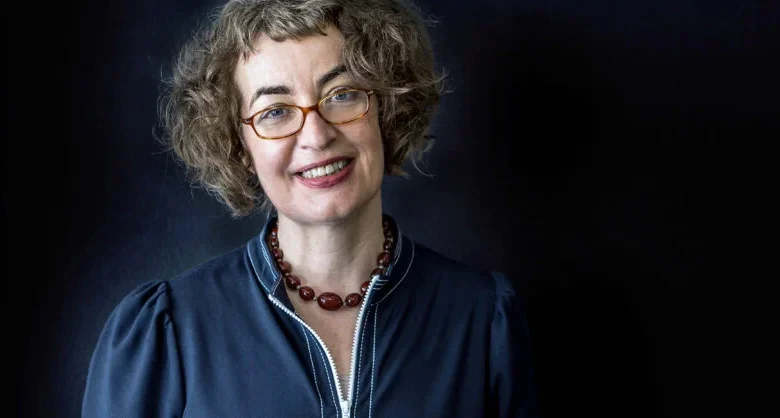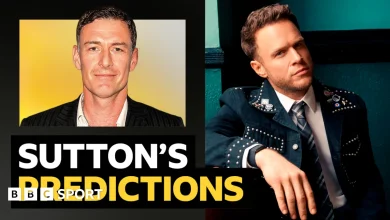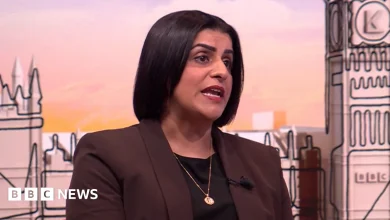Kate Clanchy has nothing to teach us

Photo by Dino Ignani/Getty Images
“I didn’t kill any cows, did I? No!”
The poet is talking to her cat about the Salem witch trials, though the two seem unlikely partners. Hetty the Bengal is runtish, “not very clever” and cross-eyed. Kate Clanchy is tall, brainy and stares right at you. But she has had little other reliable company through what she calls “all my disasters”. People could not bear to be near her while she was suffering. So she has become “A bit like the cat, really. You know, just kind of wandering around and wailing at the corners a lot.”
Clanchy has had a good few weeks after a terrible few years. There was the personal: her husband left for a new family, her three children went off to university and her parents died within two weeks of each other. But then there was the public, and the political. Clanchy was cancelled in 2021 after her teaching memoir, Some Kids I Taught and What They Taught Me (2019), was found to contain offensive descriptions. Writer Monisha Rajesh said the book was “riddled with racist and ableist tropes throughout” and “rooted in eugenics and phrenology”. She called Clanchy “KKKlanchy”. Her downfall became one of the most notorious of the “woke” period.
As we feel ourselves exiting that time and seek to understand what just happened, many have alighted on Clanchy as a potentially literal textbook case: the moralism, the misinterpretation, the ostracisation. This Wednesday (12 November) BBC Radio 4 broadcast the first episode of Anatomy of a Cancellation, a series about her. There have been sympathetic write-ups of her experience in most papers and magazines. They present the redemption as a round, complete arc. We are trying the scab, hoping it will flick away cleanly and leave behind fresh, clean skin. But talking to Clanchy, you find a wound not yet healed, the blood still weeping.
“I am so confused with all the statements I’ve made about myself in the last few days,” she tells me. And she is confusing. In one moment she says “I’m just a little author, I’m very small,” the next that her books “won absolutely bloody everything”. She watches me with a default expression of alarmed impatience, except when she quickly finds something “gigglesome”, a word I learn when she deploys it about DH Lawrence. We first meet outside her house on a busy terraced street in Oxford. Clanchy is still teaching, and arrives after a class at Mansfield College, where she is writer-in-residence. She offers me Chai. It’s a house that should feel cosy. There are sofas and overlapping rugs and multiple boxes of the board game Articulate. But Clanchy keeps her supportive trainers on. The garden walls are not quite high enough for privacy. I heard about the lodgers, of various nationalities, that she took in after her books were taken out of print. It is impossible not to wonder if that computer at the desk behind the sofa is where she first read of her disasters, to fancy that the corners still echo her wailing.
There were “you know, too many” things said about her to remember. She finds Salem a useful analogue for making sense of it all. By her research, the population of Salem, Danvers and Boston in 1692 was about that of the British literati in 2021. One parallel is the social circumstance. The Salem witch trials came at a time when “very frightening things were happening, they were in this new environment, they’d had lots of plague and just come out of a war. And they just lost it.” Clanchy’s book had been out for two years and won the Orwell prize when she was cancelled. She thinks Covid “accelerated it”.
Treat yourself or a friend this Christmas to a New Statesman subscription from £1 per month
Another parallel, for Clanchy is the misogyny. Recent articles have focused on the behaviour of three female authors as leading the charge – Monisha Rajesh, Sunny Singh and Chimene Suleyman – but Clanchy sees them as “poor things” who were “organised” by men hiding behind them. She does not think men get cancelled in the same way. She mentions the British doctor and author Adam Kay. She said that Kay was “very enthusiastically adding to the cancelling” even though his book and his performances had more offensive phrases than hers. “There’s been attempts to cancel him when he was found singing a comical song about a Down syndrome person or whatever, but he can’t be cancelled because he’s a man.”
Lastly, the recovery took a long time. Clanchy does not at all think her rehabilitation marks the end of woke. She said to me, in a not untypical register for her, “I am the body of Rebecca Nurse.” After the hangings in Salem, she says, “it was very, very difficult for the community to rebond”. They first rebonded on the reputation of Nurse. But Nurse “was 70, and she was kind, she had a good family, and she’d behaved nicely on the gallows, you know? She’d said nice prayers.” It took another 20 years before the persecutors started to say that “spectral evidence” (the grounds used to condemn witches) wasn’t real. Clanchy says: “I am the easiest witch to talk about.” She feels she would not have been chosen for the show had she been cancelled for criticising transgenderism. There is, she says, still “a fair amount of digging to be done.”
Clanchy’s political manner is quite surprising when you listen to her. She does not allow me to call her woke, but she is not far off. She was, after all, known for her work with refugee children. She says people liked the “multicultural relationship” shown in England: Poems from a School, a poetry anthology by immigrant Oxford schoolchildren that she edited and published. To dismiss a criticism, she defers to her “most beloved Somali lodger”, who she said would “scream with rage” at it. Some Kids, the book for which she was cancelled, was praised in these pages as a “moving, funny and inspiring” survey of “the marginalised, the misfits, the plain misunderstood” in settings of “spectacular ethnic diversity”. She defends the descriptions for which she was arraigned on the grounds that they were subtler and more sensitive than critics knew. To justify the use of “almond eyes” for an Afghan boy, she gave a long and detailed history of the particular Afghan population that uses the phrase.
She does not quite fit in the strongholds of anti-woke. She calls the forum Mumsnet “just mad” and recalls a thread on the site that compared her to Jimmy Savile. UnHerd “didn’t speak to me for ages but they are speaking to me now”, having supported her when she was cancelled but, she says, subsequently found her “a bit whingey and boring, I fully understand that”.
Nonetheless, the last few years have hardened her stance on free speech. She regrets the cause’s new online-right texture because “it should be something that all writers value”. But she speaks like a free speech hardliner. A Jewish Polish poet once told Clanchy about an anti-Semitic magazine that emerged in the flurry of new publications after the Cold War ended. She expressed her sympathies. But he told her, “You’ve got to understand that I would rather this existed. I genuinely would. That’s much better than it being repressed.” Clanchy spent 20 years “puzzling” over that. “But now, now I get it. It’s better to have freedom.”
There is conflict, also, in her moral feeling about what happened. She is not sure who to blame, or if she blames. For most of our conversation she justifies mobbings as “just a madness”. She points out that “many animals do ostracism and tearing apart”. At one point, she says anyone would have done what her persecutors did, in their position. She repeatedly emphasises how hard conditions are for the young generations that got most caught up in cancel culture. She says she does not want any more apologies. “I’m through with degradation ceremonies and apologies. I don’t think anyone ever needs to do any of those anymore at all.”
But some things are hard to forgive. “Probably you’d do the same in their shoes” was what “you have to say to yourself”. I ask if that was really true and she laughs bitterly. “Yeah, there’s only very, very few people I condemn – there’s a couple of them, though.” She hated it when people said she was a child abuser who weaponised the children she taught. She told me that, in reference to the almond eyes and chocolate skin, Singh started a competition for people to make fun of the tears Clanchy shed after her parents died. “Somebody that wants to do that is depraved.” When “lots of people are entering a competition to say the nastiest things they possibly can about the death of your mother, then you can’t keep your head above that. That’s really warping, it’s obscene.”
Her experience of “censorship and oppression” was “much worse than I ever understood”. She said, when I asked, that murder was the worst thing a person could do to another. However she added, “but you know I think this kind of ostracism is quite near it, it’s quite bad”. She saw her cancellation with that gravity: “I was in a really traumatic psychodrama where a group of people were trying to kill me.”
During that time, lots of people pitied her, but few wanted to see her. “Even people who are sorry for you don’t want to be with someone they feel sorry for, that’s an exhausting emotion. It’s draining to be with somebody you pity.” Some people made one kind gesture then didn’t want to see her again; others just drifted off. It became impossible “to meet people equally”. She could no longer give gifts to friends, “because you’re suspect”.
Friends, neighbours, academics and other writers did support Clanchy. Towards the end of our talk, when the living room has become dark, she tells me about a woman she hardly knew who lived nearby. The two of them would nod at each other when they crossed in the street, the woman often walking her dog. One day, two years after the cancellation, the woman stopped her. She said, “I wanted to say how sorry I am for what happened.” Then both of them “burst into tears”. Clanchy has tears in her eyes. “So, that kind of thing, yeah.”
It is too early to know what woke was. It was the water we swam in for almost a decade. If we have found the shore we are not close to dry. Naturally we want history and knowledge to clarify, but both are some way off. As we speak my mind keeps reaching for hopeful images – Clanchy was just starting to write poems again, her garden was at the stage where she mulched compost, a new book had come out by a student in which she was immortalised as “the poet”. We want a lesson from the strange case of Kate Clanchy so the suffering can have been for something. Clanchy says, “That’s what the BBC kept trying to get me to say.”
The more persuasive conclusion is that no good came of cancel culture, and certainly not a more progressive, tolerant society. Clanchy “absolutely” would rather none of it had happened. “I’m not going to say it’s salutary at all. I don’t think anyone learned anything except that people can be bullied. I think it’s horrible and I think I was only diminished.”
I ask if she is less happy now. “I think so. I think you just get less happy, you get less confident. It’s very difficult to see a future… you don’t know where to put your feet. You don’t know how to trust.” I asked if she thought her happiest day was behind her or still ahead. “Oh. Behind me I think. Yeah.” One student said it had all made her “thinner”. “He meant there’s just less of me. I think that was a good judgement.”
There is no lesson yet in the cancellation of Kate Clanchy, however much we wish there was. What we feel is that anyone who has had a friend they felt they “could say anything around” will know that such company is nearly the best part of life. And that anyone who has had a tyrannous host or boss will know that what ruins you is the tax on your nerves demanded by caprice, of being vigilant for unforeseeable wrongs. Other than that we will have to make do with the small images we can hold. I keep thinking of a trite image, where Jimmy Fallon passingly calls drag queen Ru Paul a drag queen during an interview. Paul faked outrage at the term and says “A ‘drag queen’? A ‘drag queen’?” Before he knows that Paul is joking, Fallon’s face displays total fear that he has done wrong and zero idea what he did wrong. It is a grotesque, unnatural expression for a human face.
Clanchy often quotes a verse from WH Auden’s In Memory of WB Yeats, about how writers with objectionable views will be pardoned by time “for writing well”. If you feel uneasy in the absence of a learnable redemption from cancel culture, maybe you should distract yourself. You could head to your library and read a Kate Clanchy book. The work is there to be judged as a person should never be: with wanton, subjective irresponsibility.
[Further reading: Piers Morgan on monarchy, Rupert Murdoch and Paul Marshall]




